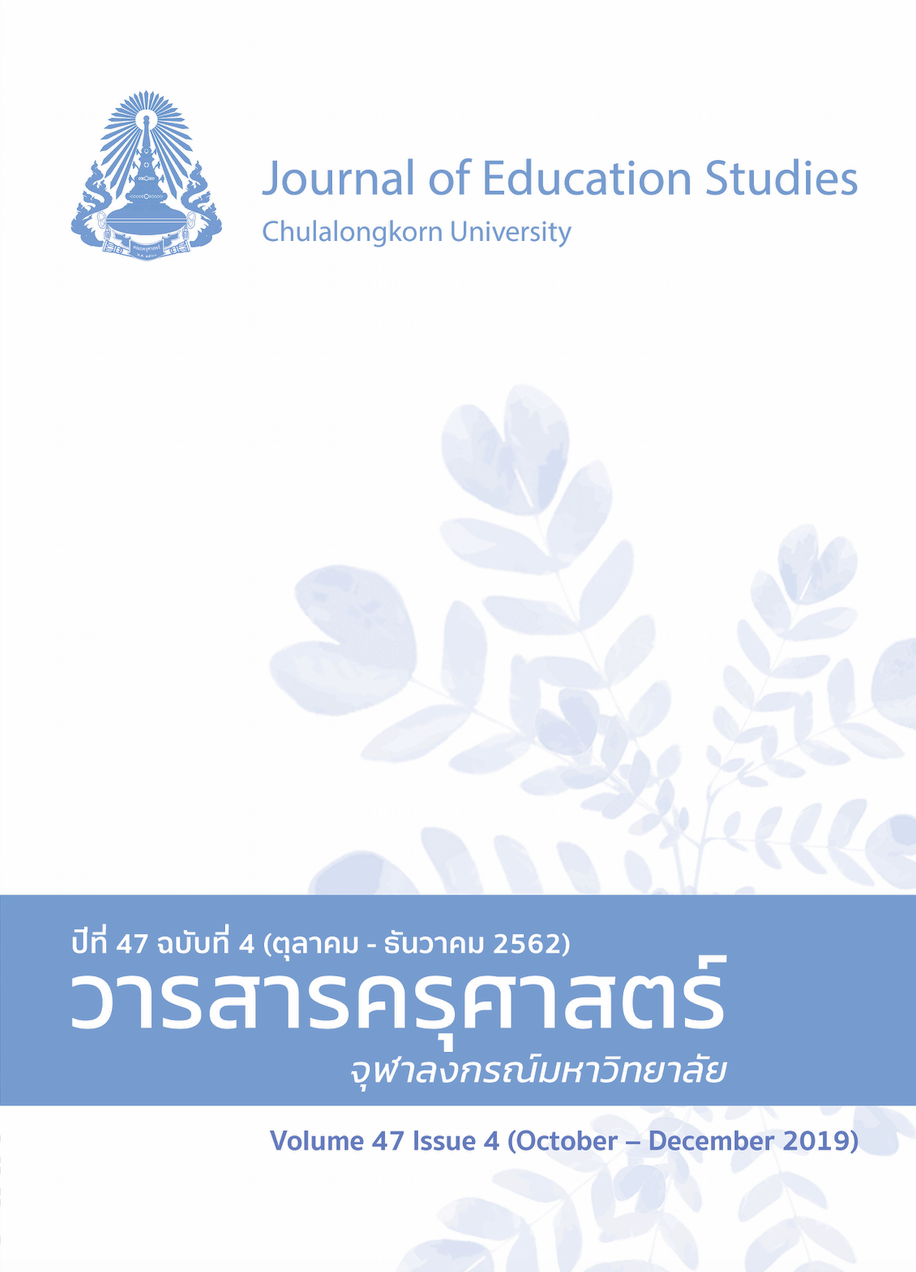Development of Teacher Preparation Process in the Eastern Region of Thailand using Contemplative Education and Coaching Approaches
Keywords:
CONTEMPLATIVE EDUCATION, COACHING, TEACHER STUDENTSAbstract
This research aimed to (1) develop the teacher production process in the eastern region of Thailand using contemplative education and coaching approaches, and (2) study the learning outcomes of teacher students in terms of the teacher characteristics and teaching competencies. The research participants were fifty teacher students. This study employed action research. The research consisted of the five steps: (1) study and analyze data on contemplative education and coaching approaches; (2) develop a model of the teacher production process using contemplative education and coaching approaches; (3) operate the process; (4) analyze and evaluate the process; and (5) conclude the research results.
The findings were as follows:
- The teacher production process using contemplative education and coaching approaches consisted of the main elements as follows: the concept and the principle of the process, the objective of the process, the strategy of the process, the steps of the process and the evaluation of the process. There were important steps of the process as follows:
(1) develop understanding through learning management for teacher students and mentors; (2) collaborative learning in institutions of teacher students and mentors; and (3) reflective learning. - The teacher students’ learning outcomes indicated two main issues: (1) teacher characteristics; and (2) the teaching competencies including self-understanding, empathy, perception of teacher profession, and learning management
References
จักรกฤษณ์ จันทะคุณ. (2560). ผลการจัดกิจกรรมการเรียนรู้ตามแนวคิดจิตตปัญญาศึกษาที่ส่งผลต่อความสามารถในการพัฒนาหลักสูตรท้องถิ่นของนิสิตครู มหาวิทยาลัยพะเยา. วารสารการวิจัยเพื่อพัฒนาชุมชน (มนุษยศาสตร์และสังคมศาสตร์) มหาวิทยาลัยนเรศวร, 10(4), 186-199.
ฉัตรชัย หวังมีจงมี และ องอาจ นัยพัฒน์. (2560). สมรรถนะของครูไทยในศตวรรษที่ 21: ปรับการเรียน เปลี่ยนสมรรถนะ. วารสารสถาบันเสริมศึกษาและทรัพยากรมนุษย์ มหาวิทยาลัยธรรมศาสตร์, 12(2), 47-63.
ธนา นิลชัยโกวิทย์ และ อดิสร จันทรสุข. (2552). ศิลปะการจัดกระบวนการเรียนรู้เพื่อการเปลี่ยนแปลง: คู่มือกระบวนการจิตตปัญญาศึกษา. นครปฐม: ศูนย์จิตตปัญญาศึกษา มหาวิทยาลัยมหิดล.
ประเวศ วะสี. (2547). ธรรมชาติของสรรพสิ่ง การเข้าถึงความจริงทั้งหมด. กรุงเทพฯ: สำนักพิมพ์ร่วมด้วยช่วยกัน.
ประเวศ วะสี. (2549, 15 กรกฎาคม). จิตวิวัฒน์: จิตตปัญญาศึกษา มหาวิทยาลัยมหิดล. มติชน, สืบค้นจาก http://jitwiwat.blogspot.com/2006/07/blog-post_15.html
สุเชาวน์ พลอยชุม. (2534). สุนทรียศาสตร์ (พิมพ์ครั้งที่ 2). กรุงเทพฯ: โครงการตำราภาควิชาปรัชญาและศาสนา คณะมนุษยศาสตร์ มหาวิทยาลัยเกษตรศาสตร์
ภาษาอังกฤษ
Blanchard, P. N., & Thacker, J. W. (2004). Effective training: Systems, strategies and practices. Upper Saddle River, NJ: Pearson Prentice Hall.
Gottesman, B. (2000). Peer coaching for educators (2nd ed.). Lanhan, MD: Scarecrow Education.
Mink, O. G., Owen, K. Q., & Mink, B. P. (1993). Developing high-performance people: The art of coaching. New York: Harper Collins Publisher.
Thrope, S., & Clifford, J. (2003). The coaching handbook: An action kit for trainers & managers. London: Kogan Page.




